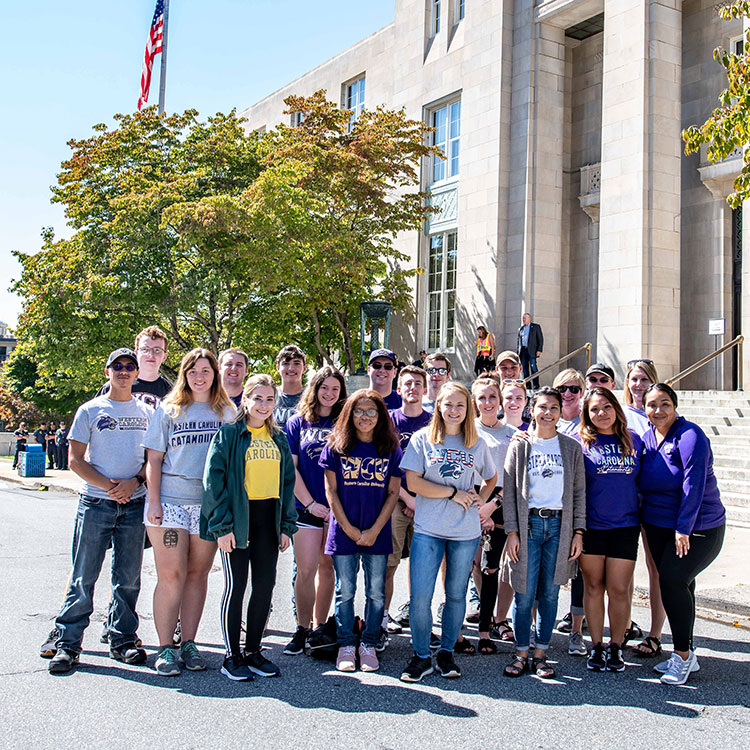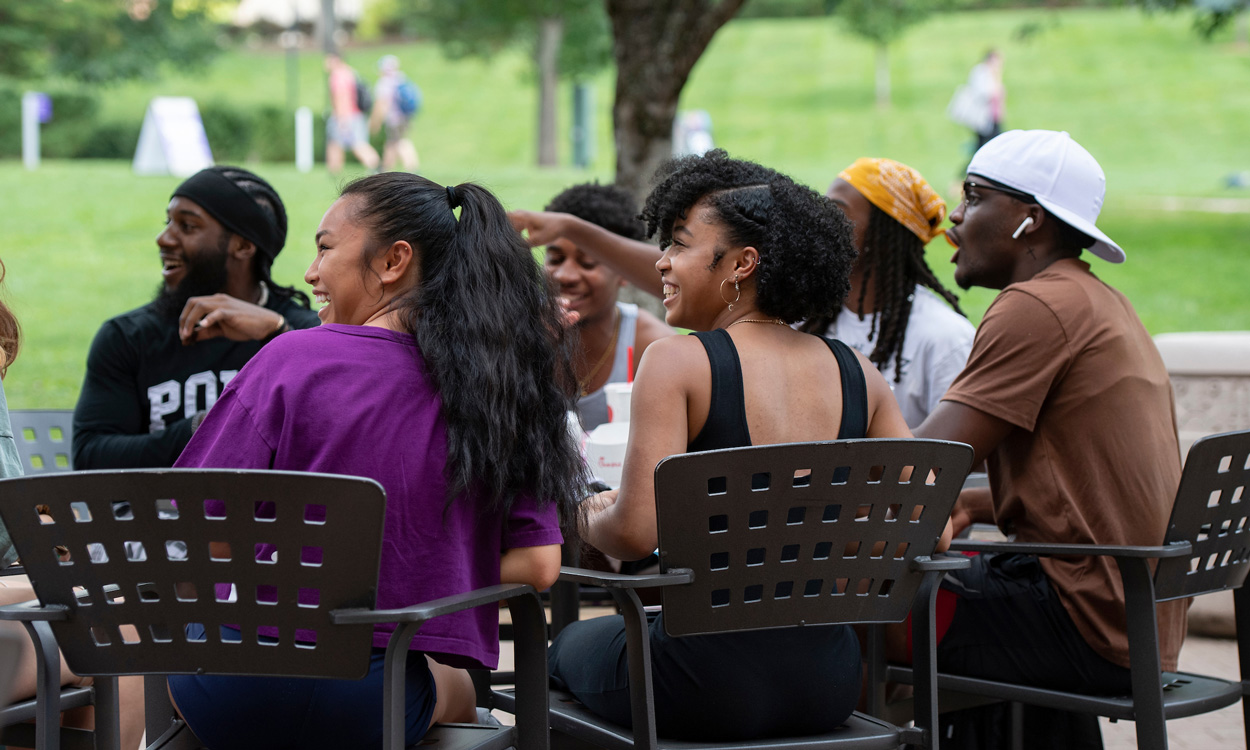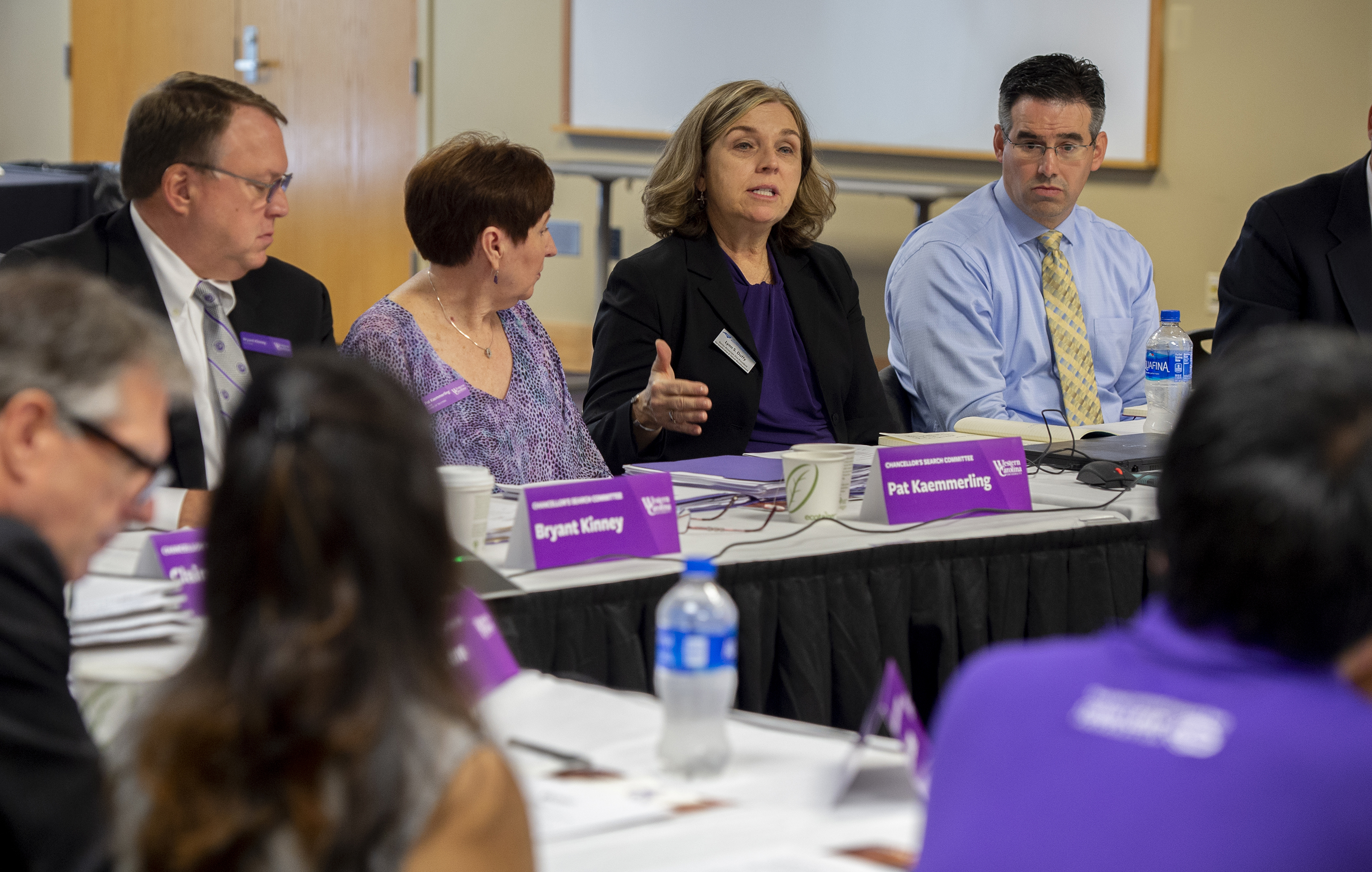Criminal justice students participate in active shooter exercise
For 23 students in Western Carolina University’s criminal justice program, the opportunity to participate as crisis actors in a multi-agency active shooter response training exercise was a chance to help and learn.
The exercise was conducted Friday, Aug. 30, by the U.S. Marshals Service at the federal courthouse in Asheville. Neighboring streets were closed and notices sent to public and media while surveillance cameras and drones recorded the reactions of first responders.
The exercise also fulfilled university objectives. The program’s curriculum emphasizes dealing with real-world situations as a foundation for future criminal justice and emergency and disaster management careers.
“I participated as well, and I can say that it was a great learning experience,” said Karen Mason, associate professor and head of WCU’s Criminology and Criminal Justice Department. “Although all of us who were courtroom role players knew the event was going to take place, we did not react as immediately as one might think. I believe that is what happens in real-world experiences. People are stunned for a few seconds ― and those few seconds can count for survival.”

These WCU students were among many participants in a multi-agency emergency training exercise in Asheville.
The scenario was scripted to portray two active shooters reacting violently to a ruling in a bankruptcy case. In real life, courthouses have been subject to active shooters and violent outbursts, with deaths and injuries reported. The FBI defines an active shooter as one or more individuals actively engaged in killing or attempting to kill people in a populated area.
“This was a public safety exercise by the U.S. Marshals’ Western North Carolina District in conjunction with Mission Hospital’s trauma program,” Mason said. “WCU students volunteered as role players for the exercise, with some acting as jurors and courtroom participants, and another three who played deceased victims.”
Other agencies involved included the U.S. Department of Justice, U.S. District Court, U.S. Attorney’s Office, Asheville Police Department, Asheville Fire Department, Buncombe County EMS, Atrium Health and Asheville-Buncombe Technical Community College. The exercise was nearly four months in planning and similar to one conducted previously in Charlotte.
Daniel Tizon, a junior and emergency medical technician with WCU Emergency Medical Services, played a juror during the mock trial. “After about five minutes, shots rang out,” he said. “The U.S. marshals in the room quickly directed everyone to stay down and rushed to the sound of gunfire, while the court security officer led the judge to his chambers.”
Tizon, along with other jurors and spectators, fled into an adjacent room. “After about 15 minutes of sheltering in place, we were given the ‘all clear’ and proceeded down to exit the building,” he said. “On our way down, we witnessed injured or dead bystanders and officers. Firefighters and medics were tending to the wounded and carrying them out, as officers and marshals began clearing rooms and evacuating us who survived.”
After the exercise, all participants came together and debriefed, finding a consensus that the response to the incident was conducted well, Tizon said. WCU students were provided lunch and then given instruction in “Stop the Bleed” training, an initiative that teaches bystanders how to help victims until emergency responders can arrive in active shooter cases. The instruction is approved by the American College of Surgeons.
WCU EMS regularly hosts “Stop the Bleed” classes and information sessions on campus throughout the year. Organizations and students may request this training at any time through wcuems@wcu.edu.

